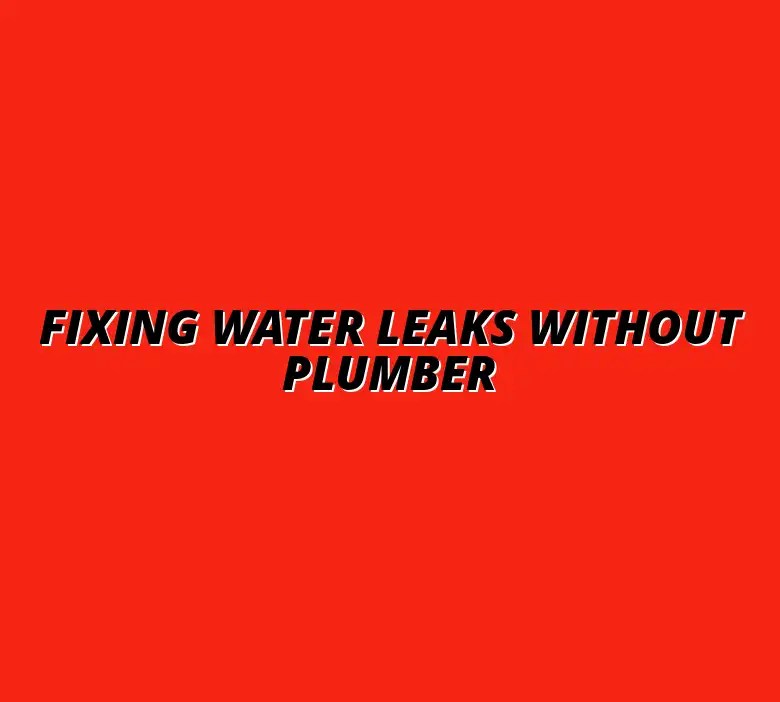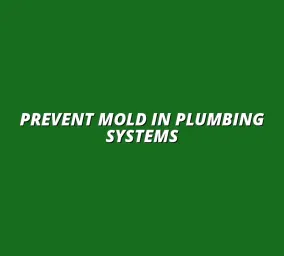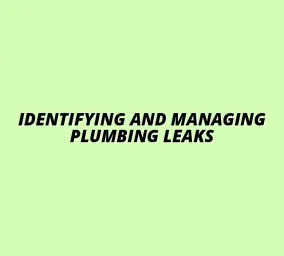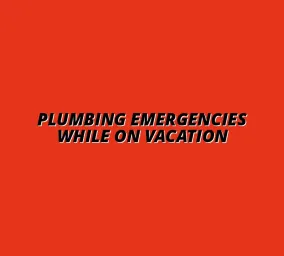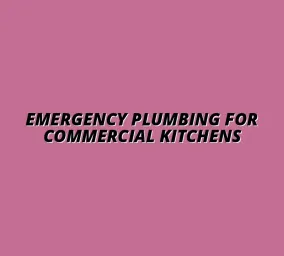Fixing Water Leaks Without Plumber
Understanding Water Leaks and Their Impact
Water leaks can seem minor at first, but they can lead to serious issues if not addressed promptly. Whether it’s a slow drip under the sink or a sudden burst pipe, the impact of water leaks can go beyond just a wet floor. It's crucial to understand the implications of leaks in your home, as they can affect both your property and your health.
Ignoring a small leak can escalate into bigger problems. Over time, even a tiny drip can cause extensive damage to structural elements of your home, leading to costly repairs. Understanding water leaks and their potential consequences is the first step in maintaining a safe and dry living environment. If you're facing a plumbing emergency, recognizing the urgent plumbing emergency warning signs is crucial for swift action.
The Importance of Addressing Water Leaks Promptly
Addressing water leaks without delay is essential for several reasons. Not only do prompt repairs save you money, but they also prevent damage that can affect your home’s overall integrity. Here are some key reasons why timely intervention is crucial:
- Minimizes repair costs: The sooner you fix a leak, the less damage there will be, meaning you can avoid extensive repairs.
- Prevents mold growth: Moisture creates the perfect environment for mold, which can lead to health problems.
- Maintains property value: A home free of leaks will hold its value better in the market.
Potential Damage to Property
Water leaks can wreak havoc on your property if left unchecked. They can lead to damaged walls, ceilings, and flooring, which may require major renovations. Additionally, the presence of water can compromise electrical systems, ultimately posing a threat to your safety. For example, a leak in your kitchen sink can quickly escalate; learning how to fixing kitchen sink leaks can save you from costly repairs.
Some common types of damage caused by water leaks include:
- Structural damage: Wood beams and supports can weaken, leading to potential collapse.
- Staining: Water can leave unsightly stains on walls and ceilings.
- Pest infestations: Moist environments attract pests, increasing the likelihood of infestations.
Health Risks Associated with Water Leaks
Beyond property damage, water leaks can also pose serious health risks. Mold and mildew thrive in damp conditions, and exposure can lead to respiratory issues and allergic reactions. This makes it vital to tackle leaks as soon as they're spotted.
Here are some health risks linked to unresolved water leaks:
- Allergies: Mold spores can trigger allergies and asthma attacks.
- Infections: Stagnant water can breed bacteria, which can lead to infections.
- Long-term health issues: Prolonged exposure to mold can result in chronic respiratory conditions.
Assessing the Situation: Identifying the Leak
Once you recognize the importance of addressing water leaks, the next step is to assess your home for signs of leaks. Identifying a leak early can significantly reduce potential damage. With some keen observation, you can pinpoint the problem before it escalates. A quick fix for a leaky faucet can prevent further complications, so learn how to stop a faucet leak quickly.
There are common signs of water leaks that every homeowner should be aware of. By knowing what to look for, you can take action swiftly and effectively.
Common Questions About DIY Water Leak Repairs
When tackling water leaks, it's natural to have questions about what can be done without professional help. Many homeowners wonder about the types of leaks they can manage on their own. Knowing this can save you time and money while still addressing the issue effectively. Sometimes, a simple DIY solution like fixing a leaky pipe joint in your bathroom can be a great first step; check out this guide on how to fix a leaky bathroom pipe joint.
In general, minor leaks such as those found in pipes, faucets, or toilets can often be fixed without calling a plumber. However, it's important to evaluate each situation carefully. If you're ever unsure, seeking guidance from a professional may be the safest course of action.
What Types of Water Leaks Can Be Fixed Without a Plumber?
There are a variety of water leaks that you might be able to handle yourself! Here are some common types:
- Dripping faucets
- Minor pipe leaks
- Toilet tank leaks
- Leaks from showerheads
Each of these issues often involves simple repairs like replacing washers or tightening fittings. If the problem persists or worsens, it’s wise to consult a plumber. Dealing with a water heater leak requires careful attention; learn more about water heater leak causes and fixes to handle it effectively.
How Long Can I Rely on Temporary Fixes?
Temporary fixes can provide a short-term solution to water leaks, but relying on them long-term can lead to bigger problems. Generally, it’s best to view these fixes as stopgap measures rather than permanent solutions.
As a rule of thumb, consider the following:
- Temporary fixes should be replaced with permanent solutions within a few days to weeks.
- Monitor the area for any signs of worsening leaks.
- Plan for a more permanent repair when you notice recurring issues.
Not addressing the issue can lead to further damage and increased costs down the line!
What Safety Precautions Should I Take While Repairing?
Safety should always be a priority when dealing with water leaks. Taking the right precautions can prevent accidents and injuries while working on repairs. And remember, proactive measures are key! Learn how to prevent frozen pipes this winter to avoid costly repairs and disruptions.
Here are some important safety tips to keep in mind:
- Turn off the main water supply before starting any repairs.
- Wear gloves to protect your hands from sharp objects and chemicals.
- Use a flashlight to see clearly in dark spaces.
- Ensure your workspace is dry to avoid slips and falls.
Taking these precautions can help you stay safe while effectively managing water leak repairs. If you need a plumber in Birmingham, UK, check out this handy resource: Plumber in Brandwood End, Birmingham.
Final Thoughts on Managing Water Leaks Independently
Managing water leaks can be daunting, but with the right knowledge and tools, you can tackle many problems on your own. It’s essential to have effective emergency repair techniques at your disposal, allowing you to respond quickly and efficiently.
Remember, while DIY fixes are often possible, knowing your limits is key. If a leak seems beyond your skill level, don’t hesitate to call in a professional!
Summarizing Effective Emergency Repair Techniques
To wrap things up, here are some effective emergency repair techniques you can use:
- Use pipe tape for quick fixes on leaking pipes.
- Inspect faucets for worn-out washers and replace them as needed.
- Check toilet tanks regularly to catch leaks early.
These techniques can help you manage leaks promptly and protect your home from damage.
Encouraging Preparedness for Future Leak Incidents
Being prepared for future leaks ensures you can act quickly when issues arise. Keep essential tools and materials handy to avoid delays when a leak occurs.
Consider creating a home maintenance checklist that includes:
- Regularly checking for signs of leaks
- Keeping a supply of pipe tape and washers
- Knowing how to turn off your water supply
With proper preparation, you can minimize disruption and protect your home from water damage!

